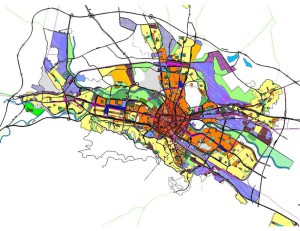Municipal law has many different areas that fall under this type of law. One of those is Zoning. Many people have heard of zoning, but don’t always understand what it means. That isn’t surprising since the law can be rather confusing.
So what is zoning then? According to lawyers.com zoning is defined as: “zoning ordinances and regulations are laws setting limits on how you can use your property. Cities, counties, townships and other local governments use zoning laws to guide developments and shape the community, usually under an overall zoning plan.”
Zoning is essential to a community. They help preserve property values, and that everything in the communities best interest. For example, a town’s zoning laws could prevent liquor stores from opening up next to a preschool, or a restaurant opening up in the middle of a residential neighborhood. It ensures that if something did occur, the business owner would suffer major consequences.
There are four different categories that most local governments will use. There could be more, but these are the four major ones. They are as followed:
- Commercial
- Residential
- Agriculture
- Industrial
Within every category, it’s broken down even further into different sub categories. In the residential category, there are different rules for single family home and multi family homes. Different zones dictate the height a house, how close they can be to one another, what animals they are allowed to have on the property, and what facilities can be built within the home. It’s essential that any homeowner who wants to change or add onto their property gets approval from the local government. Industrial zoning is broken down into three subcategories: light, heavy, and research. Commercial will dictate what properties can be built where, how they can expand, and any other thing that may arise.
As a property owner, it’s essential that you learn what is in your legal rights within your zone. If you are ever unsure of what your zoning laws may be, reach out to a specialized lawyer. They will help guide you with the paperwork and any complications that could arise.
